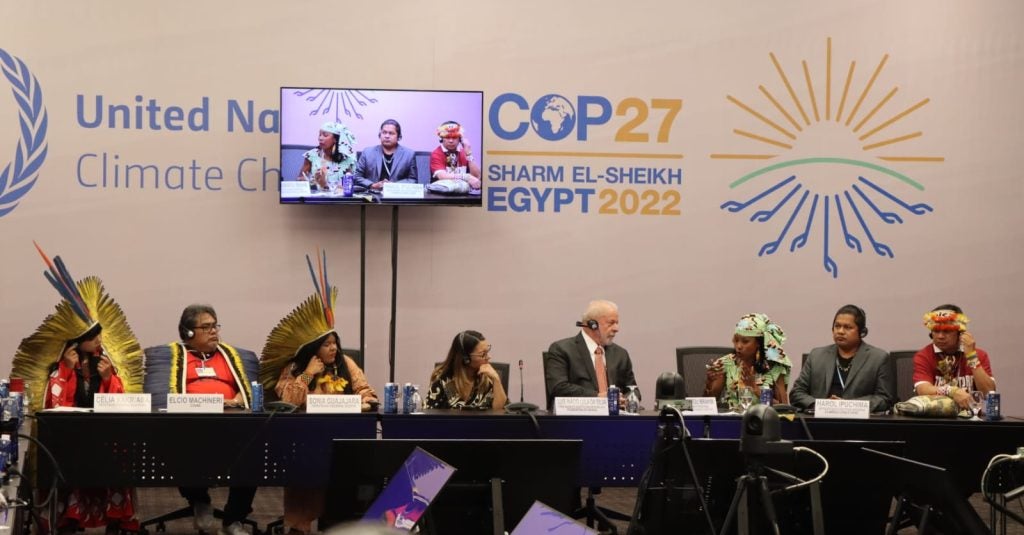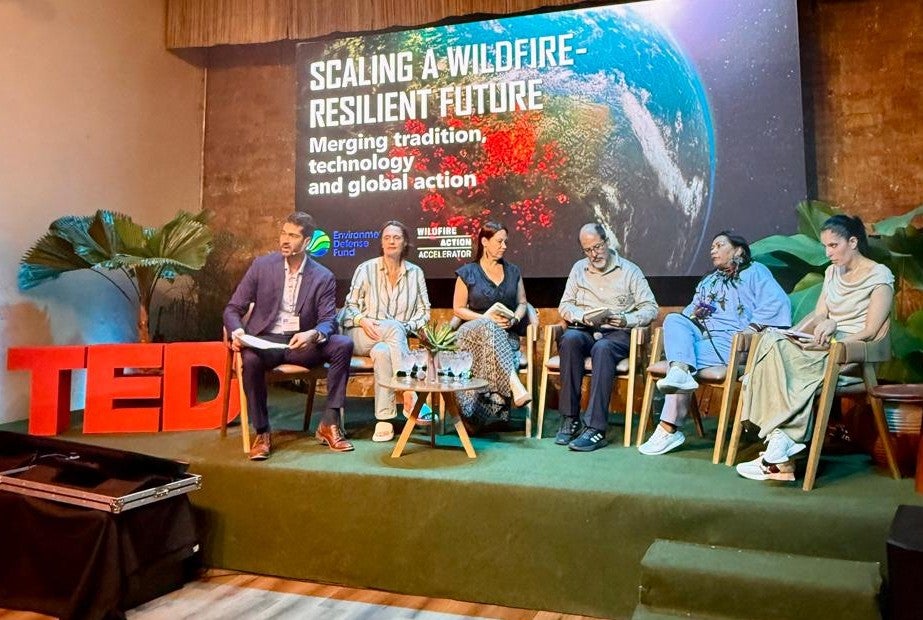Good for the planet: At COP27, Lula da Silva positioned Brazil to be a climate leader

“Brazil is back,” said President-elect Luiz Inacio Lula da Silva in his Nov. 16 address to COP27 in Sharm El-Sheikh Egypt. But it’s a Brazil far more attuned to climate change, Amazon deforestation and Indigenous peoples’ rights than the one Lula assumed responsibility for when he first became president in 2003.
During his speech, Lula promised zero deforestation in Brazil by 2030, a first-ever Ministry for Indigenous Peoples, and crackdowns on the environmental crime that has run rampant under the Jair Bolsonaro government. He also talked about a return to the “civilizing values” championed by his former Environment Minister and now congresswoman-elect, Marina Silva.
These announcements were all met with great enthusiasm by Lula’s audience in Sharm El-Sheikh, where climate negotiators, civil society, businesses and others with a stake in the climate fight convened over the last two weeks.
The prospect of Brazil’s return to leadership in the international climate negotiations – and the promise of effective action to combat climate change – are both very important developments in the climate movement.
Lula’s embrace of climate action
Lula’s presence at the COP itself is a sign of an evolution in his views. In 2002, then President-elect Lula might not have known what to make of an invitation to the annual climate summit. Climate change and the protection of the Amazon were not very high priorities to Lula and many Brazilians back then. Fast forward to 2022, President-elect Lula has promised to hold a future COP in an Amazon state.
Lula has committed to ending Amazon deforestation and announced that Brazil will re-engage with international donors to re-activate the Amazon Fund to help pay for combating deforestation.
Making Indigenous rights a priority
Highly significant is Lula’s approach to Indigenous People and Local Communities. During his speech, he reiterated his commitment to making Indigenous Peoples’ rights a higher than ever priority in his government.
The day following his COP speech, he held a high-level event with Indigenous leaders from around the world. People in the room tell us how a sense of happiness and relief permeated among the attendees. “He has made a commitment to be speak up for Indigenous People, and to be a political leader who will leverage our strategies and proposals in discussions on biodiversity and climate change,” was how Harol Rincón Ipuchima, Climate Change and Biodiversity Coordinator of COICA and Co-Chair of the IP Global Caucus to UNFCCC, summed up the meeting.
Or as Elcio Manchineri, General Coordinator of COIAB, Coordination of the Indigenous Organizations of the Brazilian Amazon, told us: “Being able to participate in the new government will be very important for us the Indigenous People, and for Brazil.”
Climate leadership
Lula also directly addressed key issues in the negotiations — loss and damage and developed country commitment to adaptation finance for poor countries — in a more informed, engaged manner than we have seen from previous Brazilian presidents. Lula at this point appears poised to deliver the climate change leadership that the world needs from Brazil.
These are all reasons for hope in the fight to abate climate change.
The scientific consensus is that the Amazon rainforest is approaching a tipping point, beyond which a large part of the forest transforms to scrub savanna. The massive loss of trees and vegetation could release enough carbon to the atmosphere to all but assure catastrophic consequences worldwide from climate change. Another four years of aggressive promotion of deforestation and invasion of Indigenous territories would, in many observers’ views, push the Amazon over the tipping point.
We can’t underscore enough the importance of the likelihood that Brazil will bring back effective policies to halt Amazon deforestation. The 60 million Brazilians who voted for Lula may well have voted to save the planet.
Further Resources
Blog: Indigenous Peoples Need a Seat at the Climate Table. Here’s Why.












